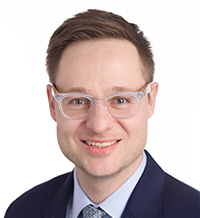
This stream of research asks how institutions that govern the work of high-skilled professionals have evolved under postindustrial “knowledge” capitalism? We focus particularly on changes in healthcare and education, services where value creation flows centrally from the effective use of knowledge.
Together, the two sectors account for a quarter of total economic output in the United States and an even large share of public expenditures. How have workers fared as public policymakers and private businesses have strengthened their efforts to boost these knowledge services’ contribution to economic growth while simultaneously attempting to better control cost and increase economic efficiency?
By concentrating on the shifting employment conditions at the top of professional hierarchies, our work provides a powerful window into the changing politics of work (and work reorganization). It demonstrates that both medical doctors in hospitals and professors at research universities have experienced increases in managerial control at the expense of professional self-governance. Yet differences in the collective organization of professionals across the fields have played a crucial role in shaping how these shifts have translated into changing labor standards.
Publications
- Givan, Rebecca. 2016. The Challenge to Change. Reforming Health Care on the Front Line in the United States and the United Kingdom. Ithaca: ILR Press.
- Schulze-Cleven, Tobias and Conny Davidsen. 2007. “Gegen den Brain Drain des wissenschaftlichen Nachwuchses: Reformvorschläge zur Hochschulpolitik in Deutschland [Against the Brain Drain of Young Researchers: Reform Proposals for Higher Education Policy in Germany].” Forschung & Lehre 7/2007: 404-405.
Presentations
- Givan, Rebecca and Tobias Schulze-Cleven. 2016. “Precarious Professions? Knowledge Work in American Healthcare and Higher Education.” International Labour Process Conference (ILPC), Berlin, April 4-6.
- Schulze-Cleven, Tobias. 2015. “Knowledge Workers Meet Academic Capitalism: Shifting Employment Relations in Higher Education.” Workshop on “Trajectories and Positioning in Academia: A Dialogue between European and American Perspectives,” Northeastern University, Boston, March 5-6.




